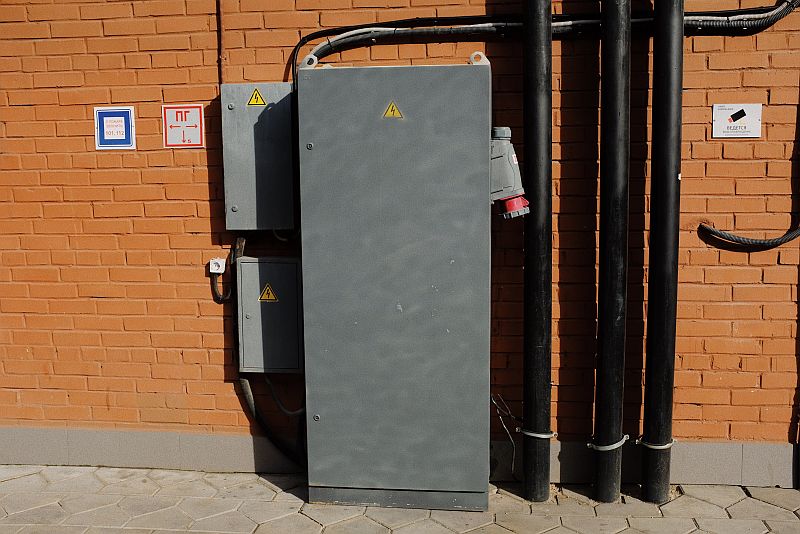During power outages, the dependability of a home generator is of critical importance; guaranteeing this crucial piece of equipment functions optimally and when to consider a home generator repair service is essential for homeowners facing unexpected disruptions in their power supply. Ergo, this article aims to provide valuable troubleshooting tips, offering guidance to homeowners when their generators encounter issues.
Understanding the Basics
Home generators – designed to provide backup power during outages – are intricate systems constructed with various components. Familiarizing oneself with the basics can contribute to effective troubleshooting: begin by acquainting oneself with the generator user manual, identifying key components and understanding their functions. This foundational knowledge can simplify the process of identifying and addressing potential issues when they arise. Ultimately, understanding the basics streamlines troubleshooting and empowers homeowners to make informed decisions about generator maintenance and operation, enhancing overall preparedness for power-related challenges.
Routine Maintenance
Regular maintenance is fundamental to the optimal performance of a home generator; ensure scheduled maintenance (as outlined in the user manual) is carried out diligently. Common maintenance tasks include checking fuel levels, inspecting connections and cleaning or replacing air filters. Adhering to a routine maintenance schedule significantly reduces the likelihood of unexpected breakdowns during power outages. This proactive approach enhances the generator’s reliability while prolonging its operational lifespan, offering sustained peace of mind to homeowners in the face of potential power challenges.
Fuel System Issues
One of the primary challenges faced by home generators relates to fuel systems – addressing these issues requires a systematic approach. Begin by checking fuel levels and ensuring the fuel supply is uncontaminated, where stale fuel or water in the fuel tank can impede the generator’s operation. Moreover, regularly replace fuel filters and verify that the fuel shut-off valve is functioning correctly. Lastly, if the generator operates on propane or natural gas, ensure a steady supply and inspect the lines for leaks, circumventing the possibility of harmful emissions like carbon monoxide that pose a significant risk to human life.
Battery Problems
Generators rely on batteries to initiate the starting process; thus, battery issues can disrupt the functionality of the generator. It is recommended to regularly inspect and clean the battery terminals, ensuring a secure connection. Replace batteries as per the manufacturer’s recommendations – typically every two to three years, even if they appear to be functioning adequately. Moreover, keep spare batteries on hand in case of emergencies. Ultimately, well-maintained batteries enhance the generator’s reliability and contribute to a swift response during unexpected power interruptions, ensuring a seamless transition to backup power when needed most.
Overheating Concerns
Overheating can compromise the efficiency of a home generator – check for adequate ventilation around the generator, ensuring it is not enclosed in a confined space. Inspect the cooling system, including the radiator and coolant levels and clean any debris or dirt that may obstruct airflow. Furthermore, overheating can often result from overloading the generator – be mindful of the connected appliances and ensure they fall within the generator’s capacity. Overall, proactive measures to prevent overheating optimize the performance of the generator while contributing to its longevity, ensuring a reliable source of backup power when required.
Electrical System Malfunctions
Issues within the electrical system typically manifest as power fluctuations or failure to start – check circuit breakers and fuses for any signs of damage or tripping and inspect the wiring and connections for wear or loose fittings. A multimeter can be a valuable tool for testing electrical components; for those unfamiliar with electrical systems, it is advisable to seek professional assistance. Regularly updating and documenting the maintenance history of the system can aid professionals in diagnosing and addressing issues promptly, ensuring sustained reliability.
Automatic Transfer Switch (ATS) Problems
An ATS is a critical component that automatically transfers the power source from the grid to the generator during an outage. Issues with the ATS can disrupt the seamless transition of power – regularly test it according to the manufacturer’s guidelines to ensure its proper functioning. If the generator fails to start during a power outage the ATS may be a primary culprit. Additionally, installing an alarm system that alerts homeowners to potential ATS malfunctions enhances awareness, accommodating timely intervention and preventing extended periods without backup power.
Professional Assistance
Although routine maintenance and basic troubleshooting can resolve many generator issues, certain problems may require professional intervention. If despite troubleshooting efforts, the generator continues to malfunction, or if there are concerns regarding the electrical system, it is advisable to consult with a qualified technician. Professional assistance ensures that complex issues are addressed accurately, minimizing the risk of further damage. Moreover, establishing a regular schedule for professional inspections and servicing adds an extra layer of assurance, identifying potential issues before they escalate and providing ongoing peace of mind for homeowners.
Concluding Remarks
Navigating home generator challenges demands a systematic and informed approach; regular inspection, timely troubleshooting and professional assistance (when required) contribute to a resilient and prepared approach to managing home generator challenges. In an increasingly uncertain power landscape, such preparedness ensures that households can weather outages with minimal disruption, maintaining essential functions and promoting overall resilience.
Article Submitted By Community Writer




